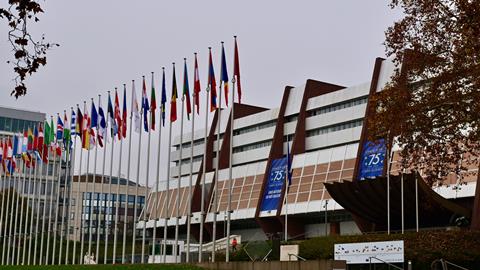In a move likely to fuel the debate over membership of the European Convention on Human Rights, the convention’s parent body has rebuked the UK over the policing of protests and the status of trans people.
The Council of Europe today published two letters from Michael O'Flaherty, the Strasbourg body's commissioner for Human Rights. In the first, to the home secretary, O'Flaherty raises concerns over the arrests of individuals who express support for the proscribed group Palestine Action. 'I am aware that ‘support’ for a proscribed group is an offence under the Terrorism Act 2000,' he writes, adding that 'domestic legislation designed to counter "terrorism" or "violent extremism" must not impose any limitations on fundamental rights and freedoms, including the right to freedom of peaceful assembly, that are not strictly necessary for the protection of national security and the rights and freedoms of others.'
He also encourages the government to reconsider protest-related provisions in the Crime and Policing Bill currently before the House of Lords, in particular the proposed new offence of concealing one’s identity.
In a separate letter addressed to the chairs of the Joint Committee on Human Rights and the Women and Equalities Committee, O'Flaherty raises concerns about the implementation of this year's Supreme Court judgment in For Women Scotland.
'It should be ensured that steps taken towards implementing the Supreme Court judgment avoid a situation where a person’s legal gender recognition is voided of practical meaning, to the extent that it leaves trans people in an unacceptable “intermediate zone”,' he writes.
In the UK, he adds 'I observe a tendency to see the human rights of different groups as a zero-sum game. This has contributed to narratives which build on prejudice against trans people and portray upholding their human rights as a de facto threat to the rights of others. Such a zero-sum approach risks certain inferences being drawn from the UK Supreme Court judgment that could lead to widespread exclusion of trans people from many public spaces.'



























